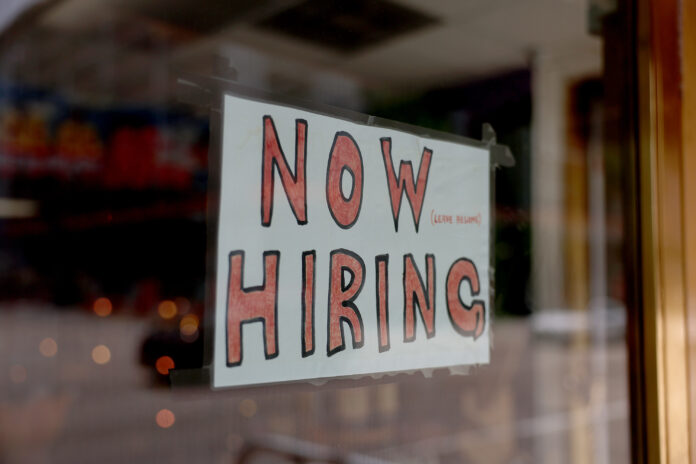As of April, there were 9.6 million job openings and only 5.7 million unemployed people to fill them. This labor shortage is affecting the economy in multiple ways, including slower economic and business growth, and reduced productivity.
Fortunately, there are a number of options to address this shortage: increase wages to attract and retain workers, invest in training programs to help fill open jobs, and reduce barriers to liveable wage employment. The latter holds especially true for the 80 million Americans with arrest or conviction records.
Last month, as part of its effort to increase fairness in our criminal justice system, the Biden administration released a plan to expand employment opportunities for Americans who suffer from conviction histories. The administration’s plan is a cue to private employers to follow the federal government’s lead and adopt fair chance hiring practices (hiring people with records) to build a fairer future of work.
With nearly one-third of working-age adults living with an arrest or conviction record, many have been systematically locked out of the labor force. The unemployment rate for the formerly incarcerated in the U.S. is a staggering 27 percent. Fair chance hiring is not only an opportunity for this country to invest in people; it is an opportunity for every employer in need of workers, and an opportunity to restore communities.
The administration’s new plan will expand job opportunities across the federal government—the nation’s largest employer. This whole-of-government strategy will enlist a variety of agencies in removing employment barriers for the formerly incarcerated and establishing metrics to measure success. Private sector employers should emulate this forward-looking approach.
Doing so will unlock additional business benefits, including:
—Retention: One of the biggest challenges for employers since the pandemic has been high turnover, which results in lower productivity, lost revenue, and increased costs related to recruitment and hiring. According to multiple studies, employees with conviction records have higher retention rates than those without records; these hires tend to work harder and feel more loyal to the employer who gave them an opportunity to reset their lives.
—Diversity, Equity, and Inclusion (DEI): Workplace diversity improves innovation, problem-solving, and financial performance. We often rightfully silo discussion or DEI efforts around race or ethnicity. But what has proven to be equally critical is the diversity of lived experience and perspective. Fair chance employers see the value of sourcing and developing previously overlooked talent—and of the unique perspectives and experiences these individuals bring to the table to inform product development, customer acquisition, marketing, and more.
—Corporate Social Responsibility/Social Impact: Fair chance hiring is an important lever in corporate social responsibility and social impact efforts that highlight a company’s commitment to diverse and underserved communities. And that commitment can boost the bottom line—the vast majority of American consumers approve of companies having a positive impact on their communities. This can translate to better brand loyalty and increased revenues.
Joe Raedle/Getty Images
In 2019, in a move to adopt more inclusive hiring practices, JPMorgan Chase launched a fair chance hiring initiative. The company eliminated the initial screening question about conviction records from its application and instead assessed an individual’s record later in the hiring process. This allowed candidates to be evaluated first based on their skills and qualifications. The company also invested in external partnerships and policy advocacy to promote fair chance hiring more broadly.
The fair chance hiring initiative has had a significant impact on both the company and the broader community. Internally, JPMorgan Chase reported that it hired over 4,200 people with conviction histories, representing about 10 percent of its new hires. And these hires are contributing to the business’ success across departments and in multiple markets.
Employers should continue to share and learn from stories like those of JPMorgan Chase, which show the benefits available to businesses that implement fair chance hiring. As part of the Biden administration’s strategy, later this year the Departments of Labor and Energy will convene a roundtable to highlight promising practices and partnerships between unions and trade associations, workforce development programs, and reentry organizations. Companies should strive for a seat at that table, so they can learn how they can put these proven policies and practices into place.
By 2030, 100 million Americans are expected to have criminal records. Excluding so many people from employment serves no purpose; it undermines individual success, business growth, and community stability. The Biden administration is extending its hand, looking to offer justice-involved individuals a fair chance. Private sector employers should follow the administration’s lead and work to implement fair chance hiring practices. This will both broaden the talent pool for companies seeking workers and ensure a diverse and robust workforce for the 21st century.
Ken Oliver is the executive director of the Checkr Foundation, and vice president of Checkr.org.
The views expressed in this article are the writer’s own.


